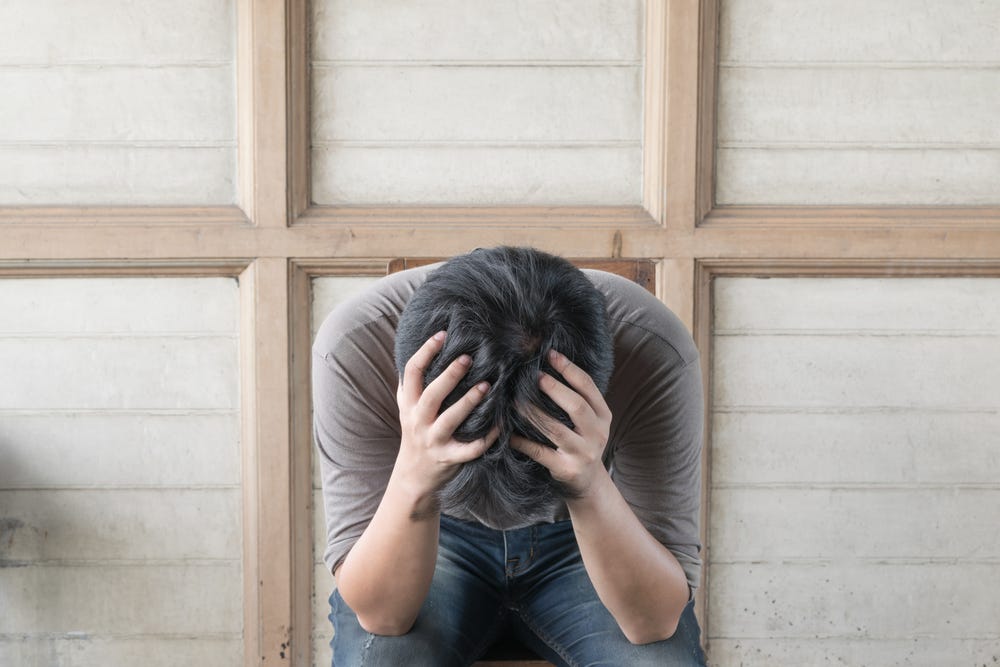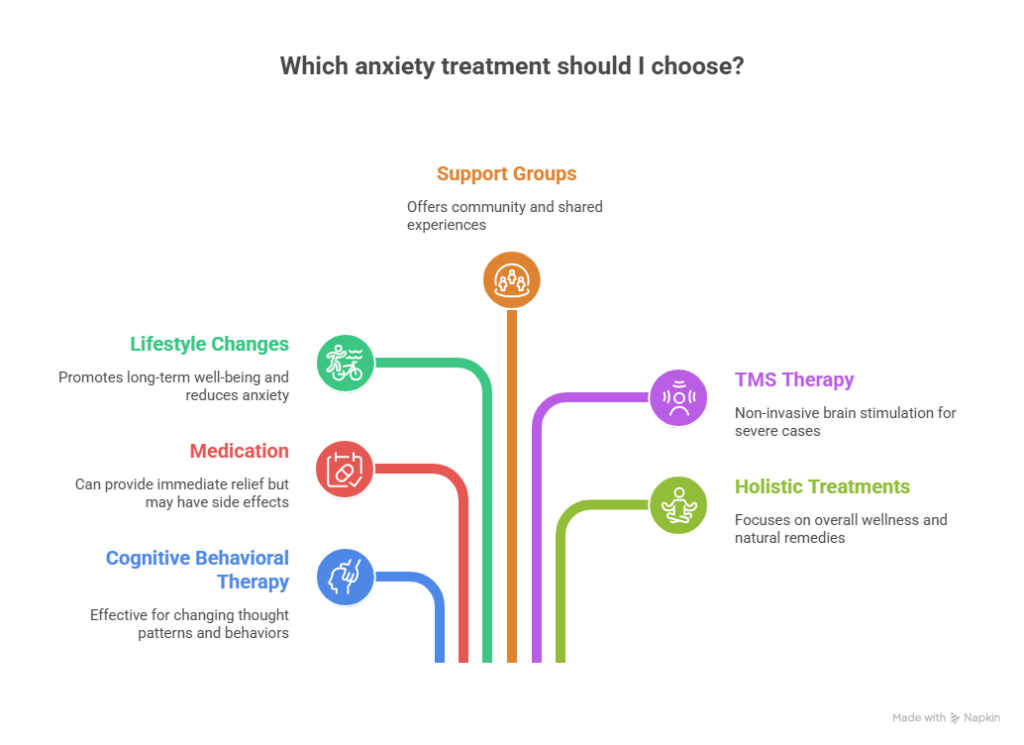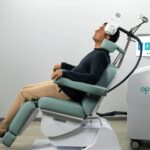
What are the Best Treatments for Anxiety?
Feeling anxious is a part of life — we all worry about exams, jobs, or relationships sometimes. But when anxiety becomes constant, overwhelming, or affects daily life, it may be a sign of an anxiety disorder. The good news? Anxiety can be treated effectively.
What are the Best Treatments for Anxiety?
So, what are the best treatments for anxiety? The best treatments for anxiety depend on the severity of symptoms, your medical history & personal preferences.
Book Your Appointment TodayIf you’ve been asking yourself what are the best treatments for anxiety, this guide will help you understand all the available options — from therapy and lifestyle changes to medications and advanced treatments. Clinics like Karma Doctors & Associates, known for effective Anxiety Treatment in Palm Springs, combine these methods to help people feel calm, confident, and in control again.
Understanding Anxiety
Anxiety is your body’s natural reaction to stress or danger. But for some people, anxiety doesn’t go away — it stays even when there’s no real reason to worry. This can make it hard to work, study, or relax.
Here are some common types of anxiety disorders:
- Generalized Anxiety Disorder (GAD): Ongoing worry about everyday things.
- Panic Disorder: Sudden attacks of intense fear and physical symptoms like sweating or shortness of breath.
- Social Anxiety Disorder: Fear of being judged or embarrassed in social situations.
- Phobias: Strong fears of specific things, like heights or flying.
- OCD and PTSD: Anxiety connected to obsessive thoughts or past trauma.
The Best Treatments for Anxiety
There is no single “best” treatment that works for everyone. The right plan depends on the type of anxiety, how severe it is, and your overall health. Let’s explore the best treatments for anxiety that have helped millions of people.

1. Cognitive Behavioral Therapy (CBT)
Cognitive Behavioral Therapy, or CBT, is one of the best treatments for anxiety because it helps people understand how their thoughts and feelings influence their actions. It teaches you to identify negative thinking patterns that cause fear or worry and replace them with healthier, more balanced thoughts.
2. Medication
Medication can play a key role in managing moderate to severe anxiety. Doctors may prescribe antidepressants like SSRIs or SNRIs to help balance brain chemicals responsible for mood regulation. In some cases, short-term medications like benzodiazepines are used to control sudden panic attacks. Beta-blockers may also be prescribed to manage physical symptoms such as rapid heartbeat or trembling. Medication alone may not cure anxiety but works best when combined with therapy and lifestyle changes.
3. Lifestyle Changes
Making healthy lifestyle changes is a simple yet powerful way to reduce anxiety naturally. Regular exercise, a balanced diet, and proper sleep can greatly improve mood and lower stress levels. Avoiding caffeine, alcohol, and nicotine helps prevent symptoms from worsening. Practicing mindfulness, yoga, and deep breathing techniques encourages relaxation and emotional balance.
4. Support Groups and Counseling
Talking about your feelings with others who understand what you’re going through can make a huge difference. Support groups and counseling sessions provide a safe space to share experiences, reduce loneliness, and gain encouragement. Group therapy allows people to learn coping skills from others while realizing they’re not alone in their struggles. This social connection helps reduce emotional distress and builds confidence in facing challenges.
5. TMS Therapy (Transcranial Magnetic Stimulation)
Transcranial Magnetic Stimulation, or TMS therapy, is a modern, non-invasive treatment for anxiety that uses gentle magnetic pulses to stimulate specific areas of the brain responsible for mood and emotion regulation. It’s especially effective for individuals who haven’t responded well to medication or talk therapy. Sessions are short, painless, and require no downtime, making it an appealing option for busy individuals. TMS has been recognized as one of the best treatment for severe anxiety, offering long-lasting relief without major side effects.
6. Holistic and Natural Treatments
Natural and holistic treatments can complement traditional medical care and help reduce anxiety symptoms. These include yoga, aromatherapy, massage therapy, acupuncture, and the use of certain supplements under medical supervision. Spending time outdoors, journaling, and engaging in creative hobbies can also improve emotional well-being. While these methods alone may not cure severe anxiety, they work wonderfully alongside therapy and medication by promoting relaxation and improving overall mental health.
Can Anxiety Be Cured?
Anxiety may not always be completely cured, but it can be successfully managed and controlled with the right treatment and lifestyle approach. Many people recover fully and go on to live calm, balanced lives once they learn to understand and manage their symptoms. The goal of anxiety treatment is not to eliminate all worry, but to help individuals develop healthy coping skills, reduce triggers, and regain control over their emotions. With early intervention, therapy, and consistent self-care, anxiety can become mild or even unnoticeable.
Here are a few key ways anxiety can be managed effectively:

- Therapy: Cognitive Behavioral Therapy (CBT) helps change negative thought patterns and reduce anxiety.
- Medication: Used in moderate to severe cases to balance brain chemicals.
- Lifestyle changes: Regular exercise, healthy diet, and good sleep support long-term recovery.
- Stress management: Techniques like meditation, deep breathing, and mindfulness calm the mind.
- Professional care: Clinics like Karma Doctors & Associates, offering expert Anxiety Treatment , provide personalized, evidence-based programs that combine therapy, medication, and modern approaches like TMS for lasting relief.
Everyday Tips to Manage Anxiety
Here are a few easy habits that can help you feel calmer every day:
- Practice deep breathing for 5 minutes when feeling anxious.
- Write down your worries — journaling helps clear your mind.
- Avoid too much caffeine or alcohol.
- Keep a regular sleep routine.
- Spend time in nature or go for a short walk daily.
- Talk about your feelings instead of bottling them up.
Small, positive steps each day build long-term mental strength.
Why Choose Karma Doctors & Associates
When looking for effective Anxiety Treatment in Palm Springs, Karma Doctors & Associates stands out for its compassionate and comprehensive care. Their team of mental health experts offers therapy, medication management, and advanced options like TMS therapy — all under one roof.
They take time to understand each patient’s lifestyle, triggers, and symptoms to create personalized treatment plans that lead to real, lasting recovery.
What are the Best Treatments for Anxiety?
So, what are the best treatments for anxiety? The best treatments for anxiety depend on the severity of symptoms, your medical history & personal preferences.
Book Your Appointment TodayConclusion
So, what are the best treatments for anxiety? There isn’t a one-size-fits-all answer. The best treatments for anxiety depend on the severity of symptoms, your medical history, and personal preferences. However, most successful approaches combine therapy (like CBT), medication, and self-care practices such as mindfulness, exercise, and balanced living.
For severe or treatment-resistant anxiety, advanced options like TMS and integrated mental health programs can offer significant improvement. No matter the type or intensity of anxiety, help is available — and recovery is entirely possible with the right guidance, support, and professional care.
Frequently Asked Questions
1. What are the most effective treatments for anxiety?
The most effective treatments include cognitive behavioral therapy (CBT), medication (SSRIs or SNRIs), and mindfulness practices. Severe cases may also benefit from TMS therapy and integrated mental health care.
2. Can Anxiety be treated without medication?
Yes. Many people manage anxiety successfully through therapy, lifestyle changes, meditation, and relaxation techniques. However, some may require medication for optimal results.
3. What is the best treatment for severe Anxiety?
The best treatment for severe anxiety often involves a combination of medication, therapy, and advanced options like TMS for lasting improvement.
4. How long does it take to Recover from Anxiety?
Recovery time varies. With proper treatment, many people notice improvement within weeks, though full recovery can take several months.
5. Can Anxiety return after treatment?
Yes, anxiety can return, especially during stressful life events. Continued therapy, mindfulness, and healthy habits can help prevent relapse.
6. Is therapy alone enough to treat Anxiety?
For mild to moderate anxiety, therapy alone may be effective. Severe cases might require both therapy and medication for better outcomes.



